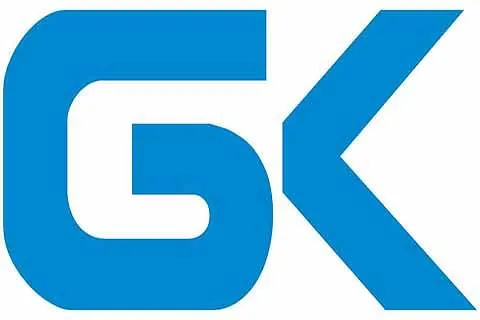I begin with a question of lost importance: what is human inhuman beings? Perhaps answering to this question is a subject matter of deeperphilosophical reflection. Our nature is not only defined by physiologicalneeds, but demands something more than mere physical existence. We are humans,perhaps, because of a certain moral significance over other species, andbecause of the claims (rights) we ought to have by the virtue of thatsignificance. My intention is not to establish this moral significance, but toemphasize some problems we easily ignore otherwise. Here I take it for grantedthat we generally believe in this moral significance to avoid digression. It’san ontological assumption I take as the basis of my argument.
As humans we possess a multi-layered identity, correspondingto our cast, class (economic or social), occupation, religion, profession,nationality, ethnicity, community etc. Our identities are simultaneous as, forexample, we may be Muslims as well as Kashmiris at the same time. Thismulti-layered simultaneous socio-political identity is a consequence of ourcollective and pluralistic life. By and large we tend to maintain a balancebetween these identities and do not let one to override our essential humannature. Multiple identities may not be mutually exclusive, for instance being aKashmiri doesn’t force me to hate a Guajarati. Imagine if a Muslim doctor treatsonly Muslim patients, differentiating the bodies based on their identities,technically called as “othering”, no doubt it will be an outrageous practice.Now what if we essentialize and single out one identity and make it a standardof our existence. Will it not be an equally outrageous thing to do? The answerto this question will be yes, provided we are sensitive to subtle nuances ofits working.
The story of this identity essentialism begins at ourfamily: the primary institution where dreams are sold. We socialize ourchildren in a way where we make them believe that their life has got meaningonly if it brings benefit, which is understood primarily in monetary terms.Therefore the choice to do something in life becomes limited, even at the firstplace, where the alternatives which may seemingly not provide monetary gains,thereby a fetishistic dignity, are simply not made available or not given anypreference. This point can be made simpler by considering a growing obsessiontowards medical sciences or engineering courses. Perhaps the most terrible timein a student’s life begins after the completion of high school, where thephilosophy of life is related to a race. After tenth a student is not admittedto eleventh, rather he or she is admitted to a market where aspirations aresold at very high prices. They are taught to be competitive, which is a rule ofmarket and which is not sensitive to individual differences. People are notequally abled to convert their strength into success. But if the order ofmarket governs our social existence, it would mean: meaning of life reducing toprofit for some and loss for others. The immanent impact is rise of inequality.
When a well engineered dream is set up in a child’s psyche,without letting him or her to explore different alternatives, their worldvision gets constructed. They tend to think in linear ways, making theirprosperity a function of an orchestrated dream. This dream becomes a desire,due to its bandwagon effect. Ultimately, the sellers of these dreams occupymarket, where this dream is made to be felt as a need. A large banner on aroadside with a toppers picture paralyses an aspirants mind. He or she seeshimself or herself on that banner, holding a gold medal with a first position.This is how market makes us feel that perhaps life is impossible, if this dreamdoesn’t come true. Our children end up being admitted to educational factories,which create mechanized beings, without being sensitive to their respectiveintellectual tastes. Consequently, they stand being alienated from theiressential self. We lose good poets in being bad engineers; we lose good writersin being bad doctors and so on.
There is a second significant connotation it makes. Whenmoney promises dreams, it loses its value. Perhaps market doesn’t give you,what your creativity does. We can buy an acquaintance for a day but we cannotcall it friendship, in a similar way we can buy information at a tuition classbut we cannot call it a lesson, for the two are far apart.
However, the actual question is how much human we remain,when we tend to think of life in this sort of competitive sense? Do we continueto have that moral significance or does our moral worth get relegated? Theproblem is when competition becomes the order of the day our secondaryidentities get stronger than our primary self as we become more professionalsor mechanized than being humans. As humans we posses two core values one is”compassion” –understood as empathetic nature, where we do not feel pity forones misfortune but are able to understand and share other’s sorrow or joy asour own, second is “emancipation” –understood as an embodiment of free life,where all exclusions are excluded, an un-alienated life where we can polish ourshoe without being a cobbler, make furniture without being a carpenter, teachstudents without being a teacher and so on; a life where we do not essentializeone form of living on our other similar associations; here we tend to beeverything, in general, but still be nothing, in particular. Perhaps the mosteffective way of dealing with this problem is to evaluate ourselves on thebasis of these two values and ask ourselves: are we at the driving seats of ourlives to choose a way of life we have a reason to choose?
Tailpiece:
My intention is not to castigate certain ways of living butto emphasize the point that we need to live a more examined life, where wecould examine the alternatives before making our choices, for “the unexaminedlife is not worth living” (Socratic dictum). Nevertheless criticism iswelcomed, for “we are discussing no small matter but how we ought to live”(Illustrious Socrates in Plato’s The Republic).
(The author is a student in PG department of PoliticalScience, University of Kashmir)






